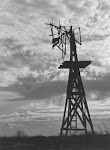Among the worthy industrious persons whose arduous toils and severe privations helped to make our county what it is, deserving of respectful mention was the late James Rodgers, Senior. He was a native of Madison County, born February 13, 1789. His first marriage was with a Miss Jackson of Madison County. The -issue of this marriage was seven children. The sons were Robert, whose wife was a daughter of John Smith, one of the pioneers of Stoney Creek, Joseph, and Drury. The daughters were Sarah, Elizabeth, Mary, and Tabitha. Respecting these children we have virtually no particulars in hand. James Rodgers came to Pocahontas County in 1824 and settled in the woods on Lewis Ridge, at a spot overlooking the Buckeye Cove. (A short distance north of Greenbank. Remember that Greenbank is where Samuel Given got started in the mercantile business before coming to Upper Glade.) Thus he and his family became identified with the county almost from its organization.
His second marriage was with Nellie Lewis, of the Little Levels, a granddaughter of Alexander Waddell, whose descendants are so numerously represented by prosperous and influential citizens in our county at this time. By the second marriage there were six children: Margaret, who became Henry Adhinson's first wife. Rebecca, who became Mrs. Fillren. William Rodgers married Polly Fleming, daughter of the late James Fleming of Swago, and settled on part of the Fleming homestead near Buckeye, where his widow and two daughters now reside. He was a Union pensioner for service in the Union Army. Chesley Rodgers married Mrs. Sally Morrison and settled near Jacox. John Rodgers married a Miss Harter. James L. Rodgers, Junior, was married twice. The first wife was Eliza Burgess. There were ten children in the first family: Justice N. R. Rodgers of Buckeye; the late Mrs. Hannah Wade; G. W. Rodgers of Beaver Dam; Davis Rodgers, deceased; John H. Rodgers, also dead; Maggie became Mrs. William Adkisson of Buckeye; Eliza became Mrs. Olie Auldridge and lives at Hillsboro, Mary and Alvin W. near Buckeye.
By the second marriage with Mrs. Mary Kellison there was a son Lewis, who is now dead, and a daughter Laura.
Thus the writer has endeavored to present the available information concerning this worthy old citizen and his family, aided by his grandson, A. W. Rodgers.
In his time James Rodgers had the reputation of being one of the most industrious of working men. He tried to train his sons and daughters to habits of industry and strict economy. Soon as they became old enough for service they went from home and found ready employment as field hands and housekeepers. This venerable man was a zealous and devoted adherent of the Methodist Protestant church. He was one of the first members in the Buckeye society, and probably one of the first in the country. His prayers and experiences talks were in good language, interspersed with allusions to the parables and quotations of the promises. All this indicates that in early, impressible youth he must have been familiar with persons of more than ordinary culture, such as Madison County was distinguished for. In his speech he had the tone and style that characterized the old Virginia gentry, as the writer learned to know in subsequent years from actual acquaintance with east Virginians.
The writer cherishes the memory of this old citizen with feeling of much respect, as the two often toiled in the meadows and harvest fields side by side in his boyhood. He remembers being often impressed by the pathos and fervency of the old man's occasional prayers in the morning worship. This was some thing which was never omitted in the old Marlington home. The belief of the old people was that "prayer and provender hinder no man" and so time was always found for prayer, as well as for breakfast and supper.
Some of his expressions still linger in memory after more than fifty years. One was an allusion to the grapes of Eschol as typical of the richness of the promised land. His idea was that God would give his humble praying people here while on the pilgrimage a cluster now and then from the heavenly vine so as to refresh and encourage them to put forth their earnest, faithful efforts to go up and receive possession of the heavenly land. This allusion was utilized as suggestive of a sermon prepared and preached by the writer thirty years ago. May we meet and see for ourselves the blessed land in all its richness -and glorious beauty, and especially the vine from which the clusters were gathered that cheered and encouraged him.
4 hours ago

No comments:
Post a Comment